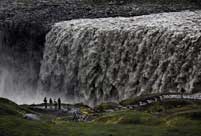 Chinese Air Force's combat group organizes actual-combat training
Chinese Air Force's combat group organizes actual-combat training How do politicians and royal families spend holidays?
How do politicians and royal families spend holidays?
 Heilongjiang issues orange alert for severe flood
Heilongjiang issues orange alert for severe flood
 Migrating flamingos gather in Kenyan lake for food
Migrating flamingos gather in Kenyan lake for food
 India launches first indigenous aircraft carrier
India launches first indigenous aircraft carrier
 Prisoners take wedding dress photos to welcome Qixi festival
Prisoners take wedding dress photos to welcome Qixi festival
 Zhou Dongyu promotes 'The Palace' in Beijing
Zhou Dongyu promotes 'The Palace' in Beijing
 Questioning China's real achievements
Questioning China's real achievements
 'Super Dan' wins Olympic final rematch
'Super Dan' wins Olympic final rematch
Eastern, central provinces most affected by weekslong heat wave
Agriculture experts worry that a severe drought that began in June may damage the rice harvest in central and eastern China this year, but add that it's too early to know whether the entire country will be affected.
"Rice fields in Anhui, Zhejiang and Jiangsu provinces have been severely affected by heat and drought this summer," said Li Maosong, director of the Chinese Academy of Agricultural Sciences' agriculture information office. "Now is the crucial time to grow rice."
It is "highly necessary" to keep a close watch on possible grain loss this year since the current long-lasting scorching heat in China's central and eastern regions imposes difficulties on local farms, he added.
Sun Hongrong, a farmer in Shanghai's suburban Songjiang district, said the prolonged high temperatures are severely affecting rice output.
Although he doubled his rice planting area this year to 13.3 hectares, Sun estimated that his farm's output will be 15 to 20 percent lower. "For good-quality rice, the best temperature for pollination is about 32 C. But it has been above 38 C for more than a week," he said.
Heat alert issued
Sun said he is not expecting a good harvest this year. Because the output of good-quality rice is expected to be low and high temperatures have increased the cost of irrigation and labor, rice prices will increase, he added.
Meanwhile, the National Meteorological Center continued to issue a heat alert on Monday, warning that temperatures in some areas in Zhejiang, Jiangsu and Anhui will hit 42 C during the week.
Official data showed droughts have affected millions of hectares of farmland.
In Zhejiang, nearly 170,000 hectares of farmland had been affected by the drought by Friday, with direct economic losses reaching 1.2 billion yuan ($196 million), according to the Zhejiang Agricultural Bureau.
But it's still too early to conclude that the existing drought will affect the entire country's output this year, Li said.
He said the country's major grain producing areas in northern China, and traditionally arid regions such as Shanxi and Shaanxi provinces and the Inner Mongolia autonomous region, have enough water to grow crops this year.
The nation's grain output exceeded 589 million metric tons in 2012, the ninth consecutive year of grain harvest increases, the National Bureau of Statistics said.
Apart from grain, other agricultural products, including tea, are also in danger.
In Hangzhou, 13,300 hectares of tea were damaged to varying degrees. More than 1,000 tea trees have died because of the drought, according to the local agricultural bureau.
Yang Guiquan, a tea farmer in Meijiawu, one of the production places for Hangzhou's Longjing green tea, said almost 20 percent of his tea trees are already dead.
"My wife, daughter, son-in-law and I have been irrigating the trees manually everyday since mid-July, but the situation is still getting worse," Yang said.
The government has arranged to have sprinklers spray water every afternoon, but it was not enough, he said.
Yang's family go to the tea yard after 6 pm every day for at least four hours. During some extremely hot days, he and his son-in-law work in shifts in the yard until the next morning.
The 62-year-old said his family members are exhausted by the heat and the drought.
"The drought will definitely affect the output in next spring. Hopefully, our losses can be kept to a minimum," Yang said.
Meteorological authorities forecast the current heat will linger until the middle of August. But the drought may extend to the end of the month because a forecast of rain for the final 10 days of the month may not be enough.
 Helicopters, tanks seen during China-Russia joint drill
Helicopters, tanks seen during China-Russia joint drill SWAT members in Shenyang offer fast defense training class
SWAT members in Shenyang offer fast defense training class Dettifoss: Europe's most powerful waterfall
Dettifoss: Europe's most powerful waterfall  Argentina's president voices support of ruling party
Argentina's president voices support of ruling party 3D painting, new way to promote apartment sale
3D painting, new way to promote apartment sale Review: Asian Men's Basketball Championship
Review: Asian Men's Basketball Championship Air Force's combat group conducts flight training in joint drills
Air Force's combat group conducts flight training in joint drills Lightning causes fire in refinery in Venezuela
Lightning causes fire in refinery in Venezuela Yunnan Wild Animals Park opens to public
Yunnan Wild Animals Park opens to public Top 10 most dangerous jobs in the world
Top 10 most dangerous jobs in the world Geomancy city Ganzhou
Geomancy city Ganzhou 3 Chinese athletes advance to final of Women's Shot Put
3 Chinese athletes advance to final of Women's Shot PutDay|Week|Month